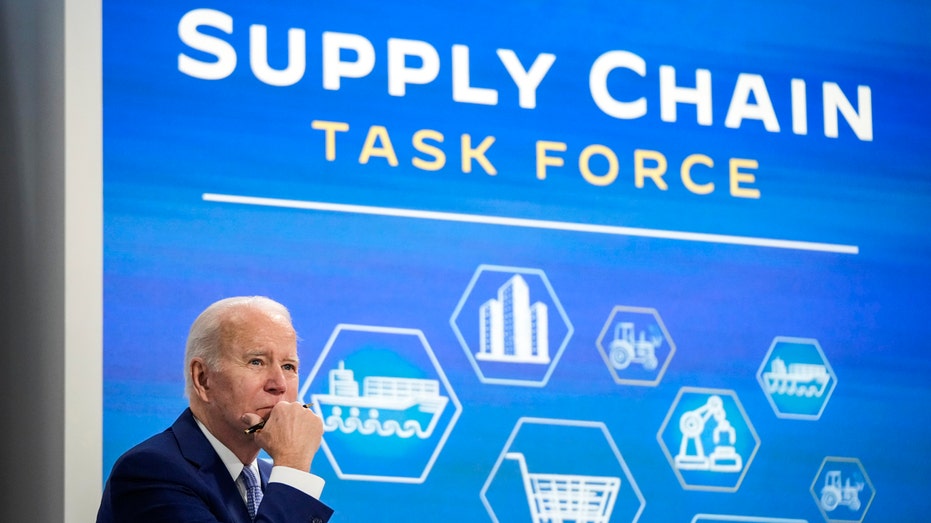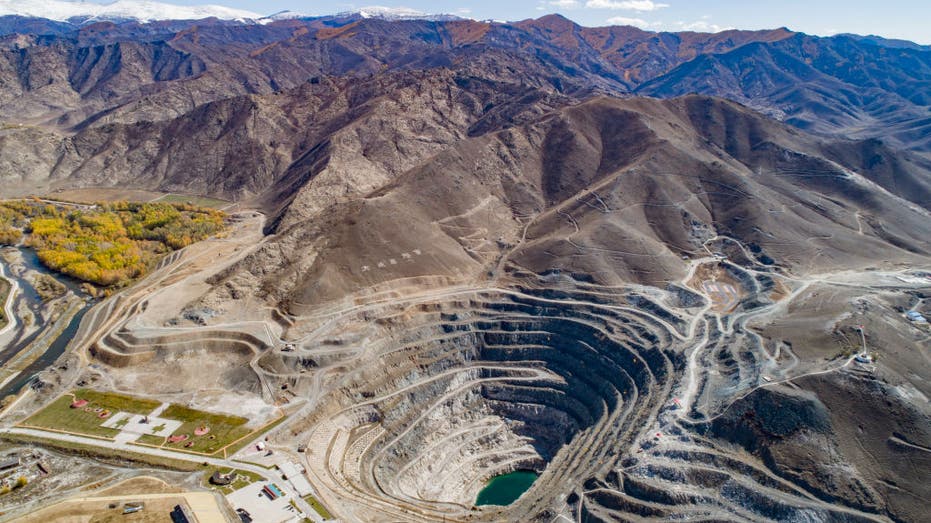Top industry group raises alarm on future of green energy: 'Has now become a crisis'
The U.S. has a 'broken and cumbersome' permitting process, the the National Mining Association president tells FOX Business
FIRST ON FOX: The National Mining Association (NMA) issued a stark warning Tuesday that the U.S. is too reliant on imports to fulfill mineral requirements needed for green energy projects.
The NMA, which is the leading trade organization representing mining interests in the U.S., expressed its concerns in a federal filing to the White House interagency working group (IWG) on mining reform. The group noted in the document that China holds a strong foothold in global mineral markets, potentially making it difficult for the U.S. to gain a foothold in the key supply chain without immediate action.
"Despite being home to extensive and varied mineral resources, the United States is facing grave mineral supply chain challenges," the NMA wrote in its filing. "Our import reliance has been a well-documented and increasingly problematic issue for decades and has now become a crisis, exacerbated by pandemic-and war-related challenges, and the electrification of our economy."
In February, Interior Secretary Deb Haaland announced the creation of the IWG, which includes the Environmental Protection Agency and Department of Agriculture, months after the White House ordered a review of the domestic supply chain and recommend solutions to expand "sustainable, responsible critical minerals production and processing." Haaland said the task force's work was important to "meet the needs of the clean energy economy."
GREEN ENERGY POLICIES WILL PUSH PRICES HIGHER THIS SUMMER, FERC COMMISSIONERS WARN

Interior Secretary Deb Haaland speaks during a news conference on July 22, 2021, in Denver. (AP Photo/David Zalubowski, File / AP Newsroom)
Green energy technologies like electric vehicle batteries, battery storage facilities, solar panels and wind turbines require a massive expansion of cobalt, copper, lithium, nickel, graphite, zinc and other mineral production, according to the International Energy Agency. For example, an electric vehicle requires 500% more mineral resources than a traditional gas-powered car while a single onshore wind turbine plant requires 800% more minerals than a typical fossil fuel plant.
DOZENS OF REPUBLICANS DEMAND BIDEN ADMIN'S PLAN FOR NATIONWIDE POWER CRISIS
However, China and other hostile nations dominate the global mineral supply chain even as the U.S. and Western nations rapidly push a transition to green energy technologies.
"The U.S. is at a mining crossroads," the NMA's comments continued. "Mineral demand is soaring, but our policies are lagging. We need to encourage more domestic mining to meet future demand and ensure that the materials required for everything from infrastructure to electrification are readily available."
"The direction we take on Mining Law and related policies can either help secure domestic mineral supply chains or drive mining investments offshore."

President Joe Biden listens during a meeting with his administration's Supply Chain Disruptions Task Force. (Photo by Drew Angerer/Getty Images / Getty Images)
According to a White House report last year, China alone controls about 55% of global mining capacity and 85% of refining capacity.
By comparison, the U.S. mined just 6% of global copper supplies, 5.7% of global zinc supplies, 0.67% of the global nickel supplies, 0.4% of global cobalt supplies and 0% of global graphite supplies last year, federal data showed.
TEXAS POWER CRISIS UNDERSCORES GREEN ENERGY UNRELIABILITY, EXPERT SAYS: 'GET USED TO MORE BLACKOUTS'
"We must remove unnecessary obstacles to securing the materials that are essential for our economy, our energy future and our national security, and that action must begin at the tip of our supply chains," NMA President and CEO Rich Nolan told FOX Business in a statement.
"The U.S. is home to abundant mineral reserves and environmental, safety and labor standards that serve as a model for nations everywhere, yet we trail the world in utilizing those resources because of our broken and cumbersome permitting processes," he continued.

A picture of the largest mining pit in the world located in China's Koktokay National Geopark. The mine has 84 kinds of minerals. (Shen Longquan/VCG / Getty Images)
Several Democratic lawmakers and environmental groups, though, have pushed for permitting reform measures that bolster regulations and make it more challenging for mining companies to receive approval for proposed projects. In April, House Natural Resources Chairman Raul Grijalva, D-Ariz., and Sen. Martin Heinrich, D-N.M., introduced legislation that would implement fresh restrictions on domestic mining.
Still, as part of the July deal green-lighting the Inflation Reduction Act, Senate Majority Leader Chuck Schumer, D-N.Y., and Sen. Joe Manchin, D-W.Va., announced legislation easing energy project permitting requirements would be introduced in September.
MANCHIN'S INFLATION BILL INCLUDES BBB'S 'MOST ECONOMICALLY DAMAGING PROVISION,' ANALYSIS SHOWS
In addition, a bipartisan group of lawmakers filed comments of their own to the IWG on Tuesday, urging the federal government to ensure domestic mining in a "timely, safe and environmentally sustainable manner."
Biden admin pushing green energy on 'zero-sum basis': Market expert
The Schork Group principal Stephen Schork argues Biden's renewable energy push away from fossil fuels drives up gas prices and inflation.
"The problem is widely recognized and well-understood," Nolan said.
"Now that Congress has committed to mine permitting reform with bipartisan support, and the administration has developed an Interagency Working Group specifically tasked with addressing flaws in the current permitting system, the time to act is now and is urgent if we want to restore America’s competitiveness, chip away at China’s dominance and begin to address the deep mineral import overreliance that we have built up over decades," he added.
CLICK HERE TO READ MORE ON FOX BUSINESS
More than 31,000 comments have been filed to the IWG. Tuesday marks the final day stakeholders are able to issue comments.






















